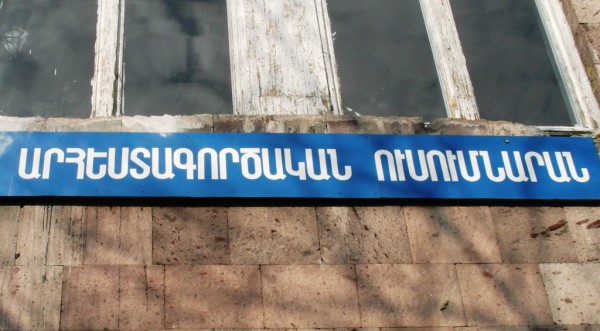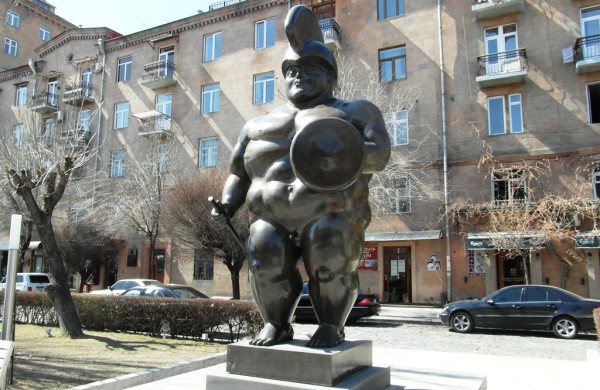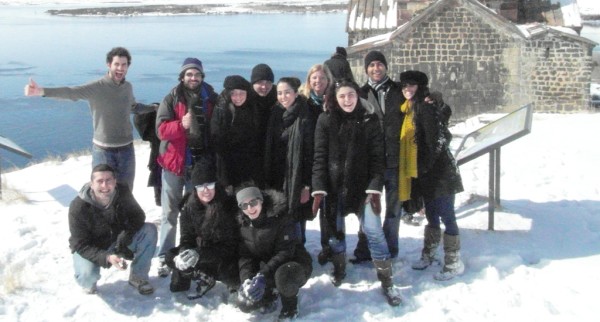
I want to love Armenia, I really do.
The country’s history is fascinating, dating back not centuries but millennia. It considers itself the cradle of Christianity, having adopted the religion 1700 years ago. The mountain landscapes are breathtaking and on a clear day in Yerevan you can find yourself staring directly at Mt. Ararat. The people are some of the friendliest I have encountered.
On paper, my volunteer placement is exactly what I wanted and my host family could not be more welcoming. My host “mom” spoils me with a home-cooked breakfast that seems to change every day and shows great patience as I try to speak Russian (she speaks no English). I have even found Western products in Yerevan that I have been missing for months, like Skippy peanut butter and Neutrogena.
But instead of basking in the glow of an amazing experience, feelings of intimidation and insecurity keep creeping in.
For the first time, I am experiencing true “language shock.”
Arriving in Armenia made me realize how comfortable I had become speaking and reading Russian. Suddenly, I am in a situation where not only do I not understand the language, I can’t even read the alphabet! Armenian is like nothing else on earth and while I am taking Armenian lessons twice a week, my teacher isn’t even attempting to teach me to read. It is just too difficult. Likewise, words in Armenian contain sounds that my mouth doesn’t even know how to make. My teacher says a word, I repeat it, she shakes her head and says it again, I repeat again…and on and on until I think she just tires of correcting me.

Not knowing Armenian makes me feel helpless. I can’t read the signs on the marshrutkas (mini-buses) to see where they go, making it harder to get around. I can’t read the menus in most fast food restaurants, leaving me to eat half my meals at KFC because I know how to order chicken kebabs, fries and coleslaw there (the girl at KFC actually has my order memorized, which is a little scary). People keep telling me that everyone at least understands Russian, but my initial attempts to speak Russian were either ignored or met with scowls. When I try to use the few words I know in Armenian, no one seems to understand because my pronunciation is off.
Everyone questions why I am here.
Everyone I have met in Yerevan asks me the same thing right off the bat: “why did you come to Armenia?” They seem suspicious of me, asking in a way that immediately puts me on the defensive, trying to explain myself, hoping I come up with a satisfactory answer. No one seems to understand why a blonde American with no Armenian roots would want to visit this country.
This questioning is new to me. No one in Estonia questioned why I would visit Estonia and no Lithuanians seemed to find it odd that I would spend two weeks in Vilnius. While many Russians thought my desire to do the Trans-Siberian was bizarre, no one thought twice about my reasons for visiting St. Petersburg or Moscow. But for some reason in Armenia, people seem to think I am incredibly weird for wanting to come here. Even the guy who sold me my visa at the border raised his eyebrows at the fact that I requested a visa for longer than the standard 21 days.

I feel like I just don’t fit in.
Until now, I have been able to bend in fairly well. Eastern Europe was full of fair-skinned blondes and with my coat and boots purchased in Russia and my hat and scarf in Poland, I looked quite European. In Armenia, I stand out like a sore thumb – not only as stares follow me down the street in Yerevan but within the group of other volunteers as well.
Let’s take a step back. I am in Yerevan volunteering through the Armenian Volunteer Corps (AVC). The group appealed to me because they are based locally and place volunteers based in part on their professional backgrounds, skills and interests. While AVC accepts volunteers of all ages and ethnicities, its sister organization, Birthright Armenia, focuses on bringing ethnic Armenians ages 20-32 who grew up outside the country back to volunteer. The two groups share offices and the staffs seem interchangeable. Birthright offers excursions and language classes in which AVC volunteers are welcome to participate. To be honest, I didn’t give the existence of two different organizations (or their overlap) much thought prior to arriving.
I didn’t anticipate that I would be the only non-ethnic Armenian volunteer.
I feel like the other volunteers have connected with each other in ways that I just cannot. Some have already been in Armenia for months and have forged strong friendships; others seemed to click immediately upon arrival. More than anything, they share a common background, a common heritage, a common language. While visiting Armenia is an interesting stop for me on my year-long journey, it means so much more to them. I would say it is like me visiting Norway or Germany, but Armenia for them is clearly more powerful. My ancestors didn’t flee those countries due to war or genocide. I didn’t grow up hearing stories from my parents about the homeland or speaking Norwegian or attending German school. They are experiencing things in Armenia in a way I can never fully understand.

I also didn’t expect that I would be the only one over 30.
Heck, I may be the only one over 25. Either way, I have had a hard time really relating to, or connecting with, the other volunteers. I feel like we are in such different places in our lives and I struggle to find things in common. Most of the others recently finished college or graduate school and are taking time to volunteer and explore their roots before moving on with their careers. They are doing what I wish I had done ten years ago and I envy them that they’re doing it now.
Don’t get me wrong, everyone has been incredibly friendly.
Several have even gone out of their way to make me feel welcome. But overall, while I don’t think I’ve been purposefully excluded, I feel like I’m not totally included either. And while I love meeting people one-on-one ,when it comes to breaking into a group – especially a close-knit group full of inside jokes and shared experiences – my insecurities take over and I tend to shut down a bit. It’s not them, it’s me.
♦♦♦♦♦♦♦♦♦♦♦♦♦♦♦♦♦♦♦♦♦♦
I wrote everything above on my 10th day in Yerevan.
I was frustrated and feeling lonely and starting to count down the days until April 14, when I am scheduled to move on. But now, with a few more days under my belt, I realize what I really need is more time.
Every day gets better. I have now had several decent conversations in Russian and I am confident I can explain to taxi drivers how to get to my apartment. The bleached blonde woman with gold teeth at the shop across the street greets me warmly in Russian every time she sees me. In the city center, more store clerks speak English than I initially realized (or expected). Sure, I’m not communicating in Armenian as I hoped, but I am communicating.
At the same time, I am starting to at least recognize some words in Armenian and I know if I had more time, it would eventually get easier. I have spent more time with my fellow volunteers and, while I still feel a bit of a gap, I am starting to feel more comfortable. If I had more time, I could get to know them better, understand their culture more, and develop closer friendships.
And if I had more time, I would be able to see more of Yerevan and the surrounding area. Between volunteering Monday through Friday, Armenian class twice a week and excursions to other parts of the country on the weekends, I have had little see the major sights close to the city, like Echmiadzin, Garni and Geghard Monastery. I feel like I may miss a lot.
Now, rather than counting the days until I leave, I am wishing I had more time and trying to make the most of the next 3 weeks.

Hi there! You may not get this comment. It is So intimidating travelling to other countries period (and I was intimidated in England, but I speak English as I’m an American). Now, I’m in Barcelona…and they are lovely, and though I speak spanish I am scared. But I was thinking of going to Armenia for a month to work virtually. I am half Armenian, but third generation, and people like me AlSO don’t totally blend in with the full-blooded Armenians who speak the language. So, I’d likely be somewhat of an outcast…maybe not quite as much because I can pass for looking Armenian (although fair…and I had my nose done, lol!) Still, I’ll bet it’s that people just haven’t taken a big interest in Armenia. Ultimately, they’d probably be so honored to know you are intrigued by the culture, people, and country. Armenians are so proud of their heritage (like most ethnic groups) so taking an interest in them would most likely be flattering. It probably just catches them totally off guard. Everyone goes to Spain, France, and Italy, or Prague or Berlin…but not so much with Yerevan…cool article! It’s amazing how much you grow travelling alone.
Pingback: Daan reist naar de Kaukasus – (2) Route en voorbereiding
If you like Armenian food, you should try to go to one of the festivals at St. Gregory the Illuminator in Chicago. The church may be having a Winter Festival in January – not sure. The church always has Armenian Fest in the summer.
Thanks Tim – was not familiar with that! Will definitely check it out!
Eek. This sounds pretty tough. I’ve only visited one country where I’ve been completely unable to read the alphabet (Taiwan), and it made stuff pretty darn difficult, but luckily there were lots of English speakers there.
I had no idea that Armenian was so hard. I was always under the assumption that it used the Roman alphabet, and was surprised when I saw an Armenian church in Istanbul. It’s one thing not being able to speak a language, another thing if you can’t even sound out what’s in front of you!
Anyway you obviously made it through in one piece. Armenian lessons in Chicago now? 😉
Haha, no Armenian lessons although I do enjoy Armenian food every now and then. 🙂
Hi! I came across your blog as I prepare to apply to the Armenian volunteer corp. I appreciate you sharing this. I am 40 years old, 100% Armenian and the only language I speak is English.I am nervous and excited about my possible adventure. Did you find many English speakers, or am I pretty much lost in the language category?
Hi Vanya! I wouldn’t worry too much about the language – all of your fellow volunteers will speak English and the AVC/Birthright staff all do as well. You’ll have the chance to take Armenian language classes (highly recommended!) but in the meantime, a lot of the volunteers will speak Armenian and will be able to help you out when you’re out together. In the center of the city, I was surprised to find as much English as I did – I think they are used to a lot of expats and NGO workers in Yerevan so bars, restaurants, etc. people spoke at least enough English to get by. I probably stressed myself out over it too much when I first got there.
I have a post coming up later today that includes some interviews with some of the Birthright participants – even though you’ll technically be through AVC because of Birthright’s age limit, I have a feeling your experience will be quite similar to the Birthright volunteers.
When do you plan to volunteer?
I am hoping in the fall. I am filling out the application now!!!
Hey Katie.. Just found your blog & am in awe how brave you are! I am looking forward to reading everything over Easter. Enjoy your last week or so… Good LUCK!
Katie, thank you for sharing your challenges on the road. That you want this experience so much is evident. You haven’t backed away from challenges and seem to meet frustrations head on. Hope you enjoy the rest of your time in Armenia as conversations begin to open up even more!
Sometimes it’s good to write something and let it sit, and then look back at it later. It totally makes sense that you would feel out of place, but I’m glad you’re starting to adjust and feel more comfortable there.
PEANUT BUTTER!! 🙂
I hope you hit your stride soon, Katie! I can’t imagine how frustrating it must be to have worked so hard to improve your Russian, only to arrive here and be completely lost again!
I know exactly what you mean about a language containing sounds that your mouth just doesn’t know how to make, though. I took some video while in Iceland last week, but I have NO CLUE how to narrate it, since I can’t pronounce half the words correctly. Lol.
Thanks Amanda! On the positive side, I’m finding I can use Russian more than I thought – and I’m getting a lot more practice with my host mom, who just speaks Russian with me.
I would be going to Armenia by next month as I’ve got a job there…I am bit nervous after reading all these posts…what do you suggest I need to prepare…before heading for that country…
Very interesting. I grew up adjacent to a heavily Armenian population in LA (plus the fact that my sis and I look Armenian and got mistaken as such allllll the time) and the things you are saying about them, I am totally having high school flashbacks of that area. Sounds kind of like “Birthright Israel”, sort of. I am glad to hear such an organization exists and that kids are using it. Right when you said you were the only non-Armenian there, I nodded my head. Yep, sounds around right!
Sounds like a really interesting experience!
Yeah, I think it might be modeled after Birthright Israel. And it is a wonderful program, it’s just so hard to relate to them (not their fault at all!). I realized after I wrote this that it kind of reminds me of the Indian community in Chicago. I have several Indian friends who I am quite close with, but when I hang out with them and their friends, I feel ridiculously out of place. People will be polite and greet me, but I’ll always be an outsider.
Yeah its fun when the language runs out isn’t it! I remember the same thing Paraguay – no one could figure out why I was there! It was just bridge across from Argentina – but suddenly no one could understand my Spanish! I’m blond like you and I think they were too busy processing – bloody -woman -here – they didn’t here my request for a room for the night LOL
When we visited Yerevan, we were really surprised by the strong connection between Armenia and its diaspora around the world. When we were there, I sometimes got chastised for not speaking Armenian (and speaking Russian instead), but when people figured out that I wasn’t a Peace Corps volunteer (we were often mistaken for this) then they were happy to chat in Russian. I’m glad to hear that you are settling in a bit more and are figuring out your groove in Yerevan.
I am embarrassed to admit I wasn’t even familiar with the word “diaspora” before I got here. Interesting about people assuming you were Peace Corps volunteers (I have met a few here). I feel lazy just defaulting to speaking Russian (I feel like I should at least be trying Armenian) but it is just soooo much easier.